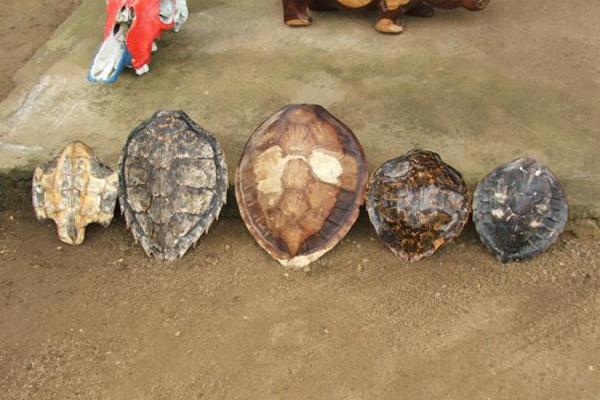Tourism and Animals - Souvenirs

In most tourist areas, we can find exotic souvenirs made from animal parts or even live animals. But just because these items are openly displayed for sale does not make it ethical or legal to purchase them. We have to be aware that we are not only tourists, but also consumers who decide what, where and if we purchase. The purchase of souvenirs made of animal parts is strongly to discourage as they may have been obtained by applying cruel methods and their sale may even be illegal.
It is normal that the fact of being in a foreign country, the difficulty of the language and culture can confuse us, or that we are being deliberately deceived by the seller when they realize that we do not want to buy animal products. Anyway, if we do not know if a product comes from an endangered species or is a result of animal abuse, it is better to opt for alternatives that do not contain shell, horn, skins, feathers, teeth, bones or other animal products. In the case of products derived from endangered species, our decisions can help their survival.
The sale of ivory is illegal, as we all know. Some jewelry, sunglasses and combs are made of sea turtle shells, a species in danger of extinction. The skins of jaguar, leopard, snow leopard, cheetah and tigers are also prohibited including shahtoosh, the wool of the Tibetan antelope - an endangered species- used to make shawls. Also any traditional Asian medicine made from parts of tiger, leopard, musk, rhinoceros, bear are also illegal. Some types of caviar come from endangered sturgeon species.
Besides from being illegal, and having alternatives, we should also consider the ethical aspects of souvenirs made from animal parts and avoid buying them.
The purchase of live animals as pets is prohibited in many countries. Many exotic animals available in markets and other outlets come from dealers who capture them from the wild, others are bred to meet this demand. But their care is very specific, expensive and we are never able to meet their needs, not even the most basic, outside their natural environment.
What you can do:
- If you are suspicious of the legality of a product made with parts of wild animals, report it to the police, your tour operator, hotel manager or the local tourist authority
- Tell the salesperson who prefer to buy products containing no animal parts
- Alert other tourists of the situation
